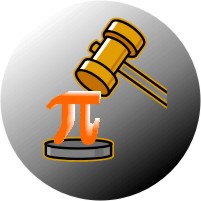| Google bid what for Nortel patents! |
| Written by Mike James |
| Saturday, 02 July 2011 |
|
Google mystified other participants in an auction for patents last week by their choice of bids. They weren't the round regular numbers that are normally expected. Google lost the auction - but was that a deliberate ploy?
No this is not a financial story - what would such a thing be doing on I Programmer? Consider for a moment a bid that Google placed in the auction for Nortel Network's wireless patents: $1,902,160,540 was one of the first. Recognize it? OK well a little later they bid: $2,614,972,128 Recognize it? Even if you don't recognize the above two numbers you must realize that there is something strange going on. Why bid such irregular sums? When the bidding got to $3 billion they produced a number that surely everyone recognizes: $3.14159 billion. Yes Google bid Pi!
The first number $1,902,160,540 is Brun's constant. This is the limiting value of the ratios of twin primes (twin primes are primes that differ by two). Not exactly an everyday constant but... The second $2,614,972,128 is the Meissel–Mertens constant. This is the difference between the sum of the reciprocal of the primes up to n and ln(ln(n)). Again, not a very familiar number but it's well documented. In the rest of the auction Google also bet the distance between the earth and the sun and a few other odd values. So was Google serious or just bored or providing a hint to anyone paying attention. Google lost the auction, by they way, and a group of six companies - Apple, Microsoft, RIM, EMC, Ericsson and Sony - finally paid $4.5 billion. Some commentators are saying that this will cause Google some problems in the future as the six companies attempt to recover their purchase price by pursuing patent lawsuits. We will just have to wait and see what happens to discover if Google should have picked some other mathematical constants during the auction. More Informationvia Reuters
|
| Last Updated ( Monday, 04 July 2011 ) |

